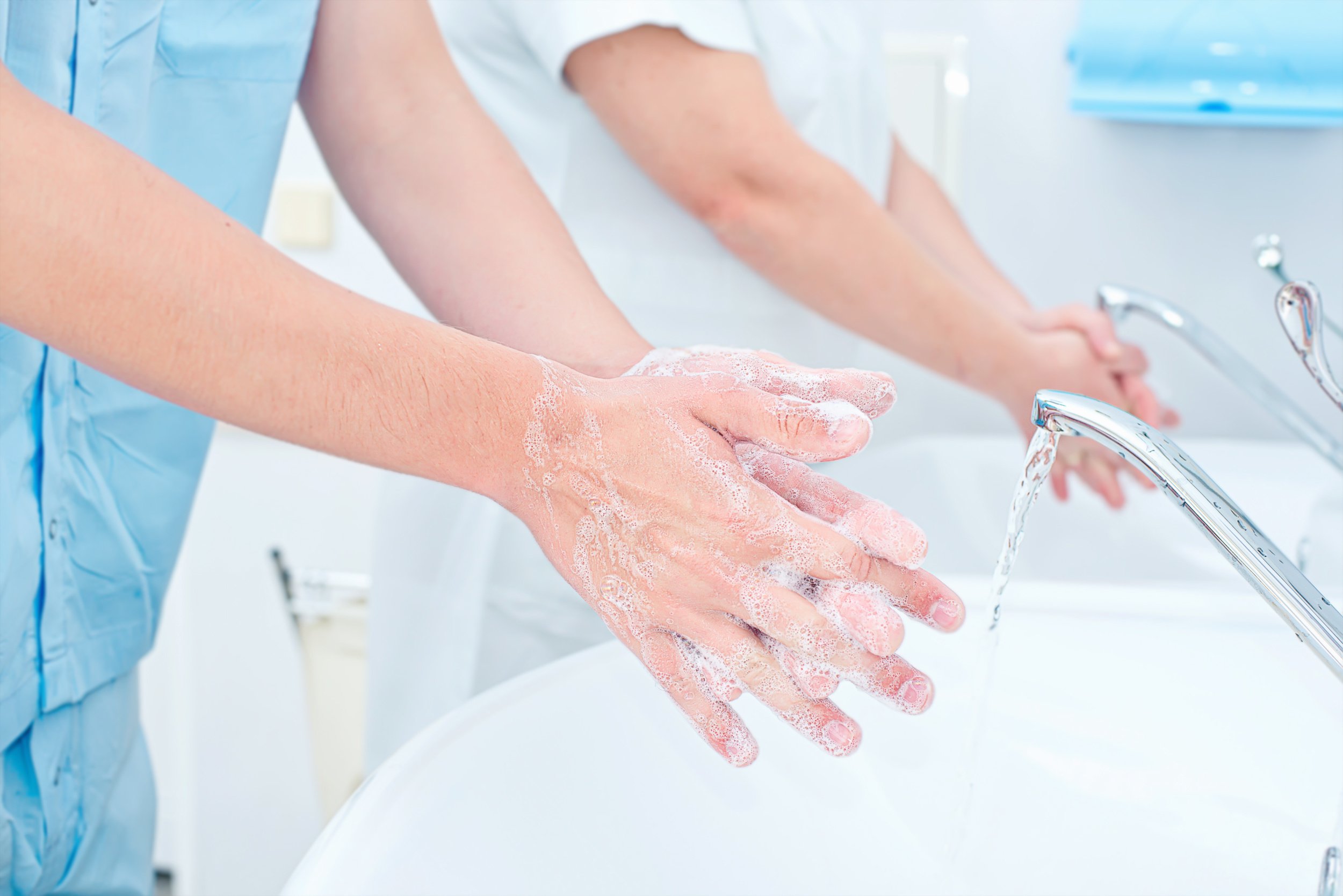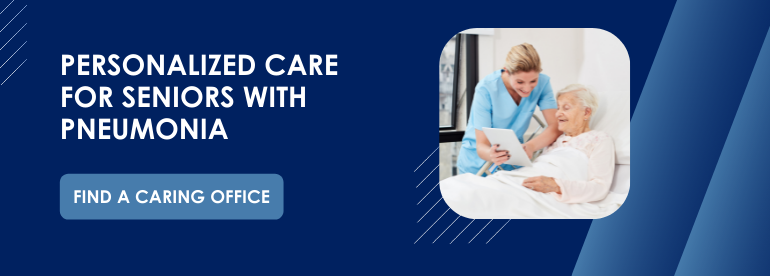Implementing some healthy habits in the workplace helps minimize the incidents of spreading contagious bugs that can develop into dangerous illnesses, like pneumonia. Pneumonia is a lung infection that can be caused by contact with a virus, fungus, or bacteria. The lungs become inflamed with fluid, making it difficult to breath. It can be highly contagious, especially when working in close proximity to others.
Pneumonia results in an average of 50,000 deaths in the United and over 1.7 million hospital visits to hospital emergency rooms. With such high statistics, it's in everyone's best interests to take precautions against spreading workplace illnesses as well as professional hardship. Following are some simple yet effective preventative measures to stop the spread of workplace pneumonia.
Tips to Prevent Pneumonia
With more seniors in the workplace who are at a higher risk for illness, it’s important to practice healthy habits. Each person in the workplace contributes to the general health and wellbeing of the others. In addition to feeling healthy, you also help others by practicing healthy habits and mindfulness.
1. Wash Your Hands
Wash your hands frequently with soap and warm water. Clean your hands after going to the bathroom and blowing your nose as well as before meal preparation and eating. Bear in mind that you can easily pick up a contagion if you've visited someone in the hospital or by being out in public. Washing your hands after these activities or interactions decreases your chances of developing illness. Additionally, try to avoid touching your face, eyes, and mouth before washing your hands. Use an antibacterial gel when soap and water are not available.
2. Maintain General Health
Getting plenty of rest and following a healthy diet and exercise regimen can help prevent you from catching a virus or respiratory illness. Maintaining a healthy lifestyle also contributes to a speedier recovery if you do get sick.
3. Cover Your Mouth When Sneezing & Coughing
Remember your mom telling you to cover your mouth when you sneezed or coughed? For good reason. The tiny particles of an infected person enter the air and are inhaled by others, thus passing on the contagion. They can also land on surfaces that are then touched by others and transported to the eyes, nose, and mouth. If you simply sneeze into your hand, however, and touch someone or something, you still run the risk of passing on the infection. It's recommended to sneeze or cough into a tissue and then dispose of it.
4. Stay Home with a Fever
Often, people feel like they can't afford to miss work because of an illness, and, as a result, send come into work with a fever. The end result is that exposing others to the contagion ends up costing everyone, and it may ultimately take you longer to heal by not getting the appropriate rest at the outset.
5. Stop Smoking
Because of the damage tobacco can do to the lungs, it makes it more difficult to fight off infection. Smokers are also much more susceptible to catching pneumonia, according the American Lung Association. As one of the high-risk groups, smokers are encouraged to get vaccinated against pneumonia.
6. Clean Environment
Keeping surfaces such as countertops, desks, doorknobs, and telephones wiped down and clean helps prevent the spread of infectious particles. Clean your work area regularly and disinfect it especially when there are sick individuals in close proximity.
7. Receive Vaccinations
Research continually shows that the spread of some illnesses, like the flu or pneumonia, can be reduced with vaccinations. Vaccinations can protect the individual who receives them and also contribute to “herd immunity.” As more individuals are vaccinated, it’s likely that fewer people in the community will develop the illness.
8. Manage Chronic Illnesses
People with chronic respiratory, pulmonary, and autoimmune conditions should take extra precautions to manage their illnesses to avoid contact with those infected. Those with chronic illnesses may be more susceptible or vulnerable to other harmful health conditions.
Pneumonia Risk Factors
In addition to the workplace tips outlined above, it’s important to remember that there are certain members of the population that are considered particularly vulnerable to contracting influenza and pneumonia. Here are some high-risk groups:
- Very young children whose immune systems haven't fully formed and seniors with weakened immune systems
- Pregnant women
- People with weakened immune systems, such as those with AIDS, HIV, and cancer
- Individuals suffering from rheumatoid arthritis
- People suffering from chronic obstructive pulmonary disease (COPD), asthma, and other respiratory ailments
- Adults with high blood pressure and heart disease
If you or a loved one is recovering from pneumonia, Caring Senior Service can help. We offer specialty care programs for our in-home caregivers to provide specific focus on a particular concern. Our pneumonia specialty program is designed to help improve the senior's quality of life while suffering from this frequently overlooked illness.
Because seniors are part of the high-risk group and susceptible to complications as a result of contracting influenza or pneumonia, short-term in-home care can help with recovery. Our team of professionals provides assistance with meal preparation, light housekeeping, transportation, medication management, and companionship, so all your senior needs to focus on is getting better in the comfort of his or her own home. Contact Caring Senior Service to find out more about our services.


